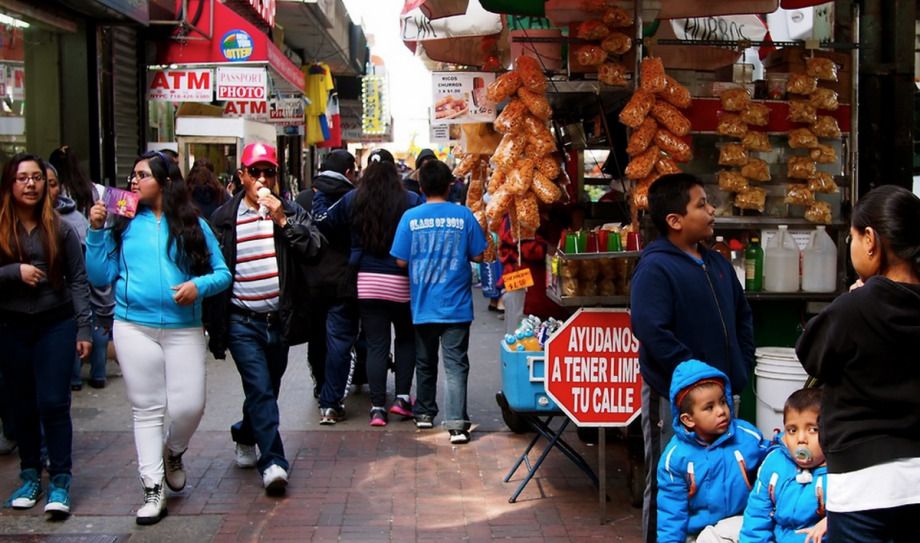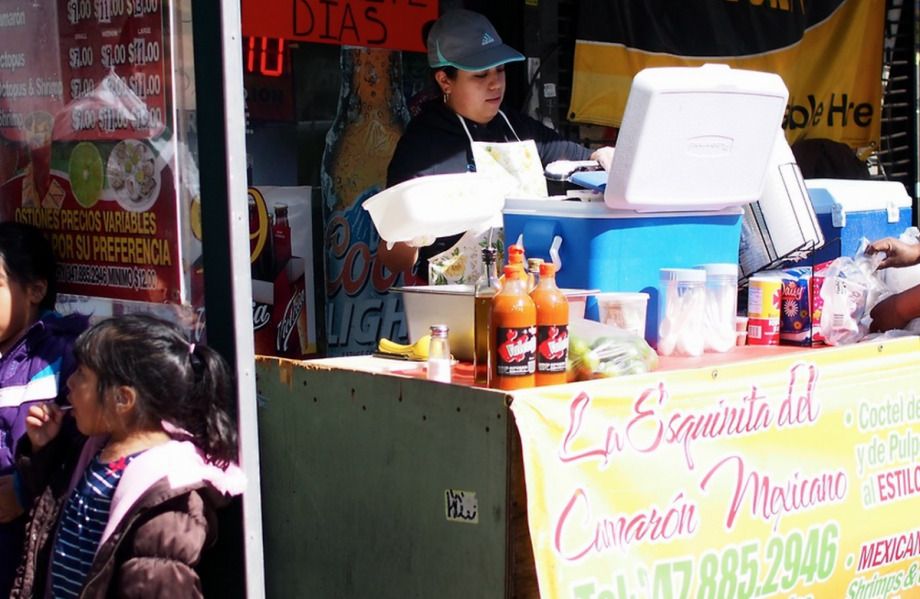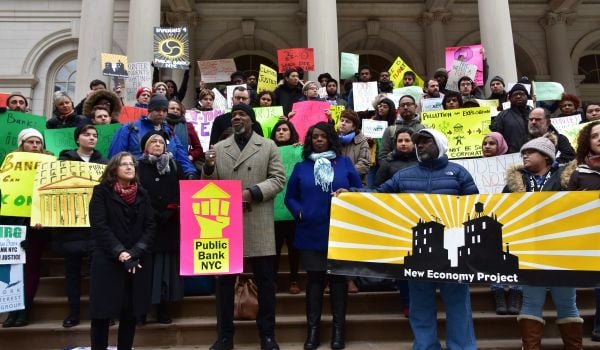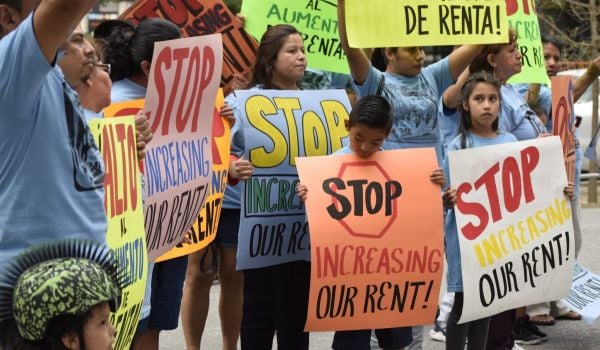In New York, a proposed extension of a business improvement district (BID) is splitting the Jackson Heights community in Queens along ethnic and class lines. Supporters of the proposal argue that it would provide a much-needed facelift to the commercial corridor along Roosevelt Avenue and make it cleaner, safer and more business friendly. Opponents argue that the rhetoric of “cleaning up the neighborhood” is an insidious euphemism for another goal: strong-arming low-income residents, street vendors and new immigrant communities out of the neighborhood.
The Jackson Heights-Corona Partnership would expand the existing 82nd Street Partnership BID to 104th Street along Roosevelt Avenue, stretching up to 35th Avenue at Junction Boulevard. (The area encompasses parts of the neighborhoods of Jackson Heights, Elmhurst and Corona.) More than 800 businesses would be required to pay a fee to the non-profit that would go toward increased sanitation, lighting and security. Some are worried that the fee would be too prohibitive and would tip the scales in the neighborhood in favor of property owners, real estate developers and bigger retailers.
Tania Mattos has been a Jackson Heights resident for 27 years. She attended her first-ever community board meeting a year ago when the 82nd Street Partnership was making a presentation about the BID. Initially, she was very impressed by the plans to provide better sanitation for the streets and support local businesses, but as she learned more about the proposal and spoke to other area residents, she became increasingly concerned about the plans. An immigrant rights activist, Mattos became shocked by the way she felt State Sen. Jose Peralta, City Councilmember Julissa Ferreras and business interests were playing up issues of crime and litter in order to justify beefing up policing and attract political interest to the BID.
“[Peralta] was demonizing Roosevelt Avenue,” says Mattos. “This a place where lots of families grow up. They go shopping every day and there are so many stores — it’s a community. For him to say that it’s only a place where there are high levels of crime. I felt offended by it.”
There is vibrant commerce happening along Roosevelt Avenue. This photo essay shows the stretch under the 7 train targeted for the BID that buzzes daily with activity within delis and bakeries, and clothing and electronics stores, and more. Street vendors along Roosevelt offer the cuisines of Colombia, Ecuador, Mexico, Peru, Argentina, Uruguay and Bolivia, selling inexpensive tamales, arepas, tacos, churros, fruit juices, ices and chili-spiced mangos.

(Photo: Braden Ruddy)
Peralta maintains he wants to “keep the flavor of the mom-and-pop shops” on Roosevelt Avenue and, at a recent event where he spoke about cracking down on the prostitution there, he claimed that there was “no need to bring in the big, big box store on Roosevelt Avenue.” During the same speech, he also said that he’s hoping for the help of local officials to attract an anchor tenant similar to Disney in Times Square — which would likely result in higher rents and mute some of the unique character of the corridor.
As for street vendors, who represent a shrinking group of self-employed business owners in the area, Jackson Heights-Corona Partnership’s website does have this to say:
Street vendors are a big part of the local economy in Jackson Heights and Corona, especially along Roosevelt Avenue. The Business Improvement District will work with the street vendor community to help ensure that rules and regulations are properly and fairly enforced. It is in the interest of the entire business community to see that vendors and ‘brick-and-mortars’ co-exist and thrive together.
Neighborhood ethnic and class tension over commerce is not a new theme in Jackson Heights, but in Beyond Segregation: Multiracial and Multiethnic Neighborhoods, Michael Maly’s coverage of the community’s 1990s conflict over signage regulations was hopeful: “Efforts [like going door-to-door explaining the benefits of the regulations] demonstrate an emerging understanding that dialogue is necessary in Jackson Heights to incorporate the various visions of the community. The key challenge is to broaden the base of residents and merchants who are defining community interests.”
Ideally, visions for a harmonious, safe, thriving thoroughfare would include accommodations for commerce tailored to a mix of incomes, take into account the existing demographics of the neighborhood, and support resourceful, creative entrepreneurs like street vendors.
However, Marty Kirchner, a community organizer for Queens Neighborhood United (which formed earlier this year), believes that the proposed BID would stifle the character of the neighborhood and the opportunities of many immigrant-owned small business owners.
“They already have limited access to capital,” says Kirchner. “They won’t be able to afford to open stores or rising rents or be able to combat corporate development.” He points out that the BID’s “one-size-fits-all” commercial vision privileges real estate developers, property owners and affluent customers.
I contacted Seth Taylor, executive director of the 82nd Street Partnership, and when I told him I’d talked to Queens Neighborhood United, he declined to comment for this story, saying, “We don’t want to legitimize a group like Queens Neighborhood United,” and “We’re simply not going to stoop down to that level,” but did not elaborate.
The Equity Factor is made possible with the support of the Surdna Foundation.

Alexis Stephens was Next City’s 2014-2015 equitable cities fellow. She’s written about housing, pop culture, global music subcultures, and more for publications like Shelterforce, Rolling Stone, SPIN, and MTV Iggy. She has a B.A. in urban studies from Barnard College and an M.S. in historic preservation from the University of Pennsylvania.

















